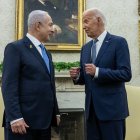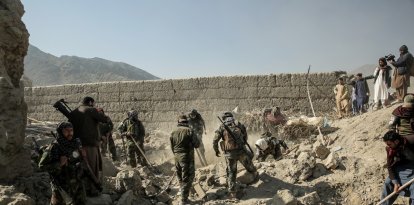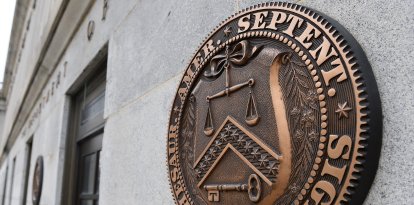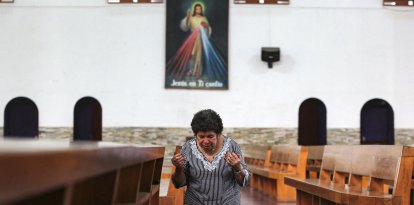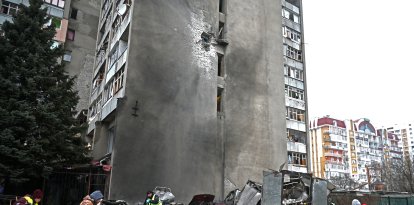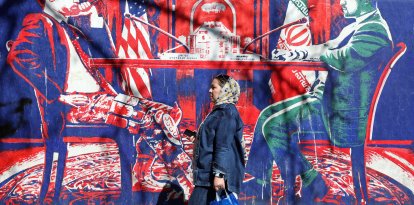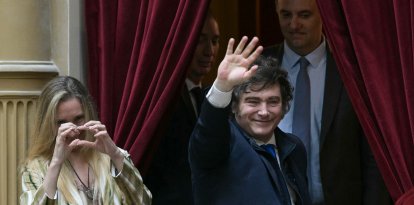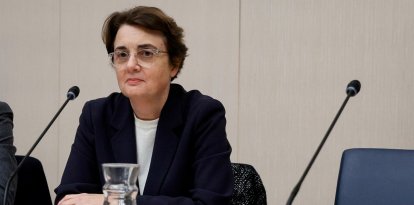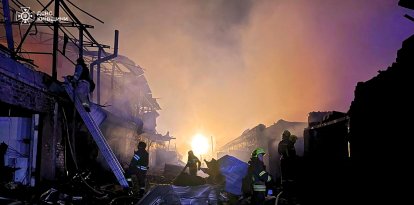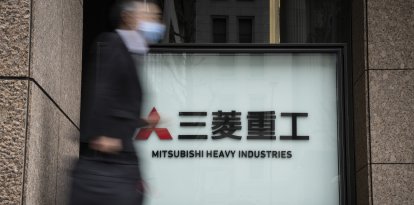Israel kills Hezbollah leader who planned deadly attack on U.S. soldiers in Iraq
Ali Mussa Daqduq was one of the architects behind the enemy raid on a U.S.-Iraqi military compound in Karbala on Jan. 20, 2007.

A soldier shows a photograph of Ali Mussa Daqduq (left) on July 2, 2007
Israel launched an air offensive in Syria and killed a senior Hezbollah commander who helped plan one of the most elaborate and deadly attacks on U.S. troops during the Iraq war, a senior U.S. Defense official told NBC News.
He is Ali Mussa Daqduq, who in 2007 was captured by U.S. forces following a raid where militants posing as a U.S. security team killed five American soldiers.
Following his capture, Ali Mussa Daqduq was released by the Iraqi government.
At the time of publication, details of the Israeli airstrike are scarce. For example, it is unknown when and where the attack occurred. It is also unclear whether the Israeli attack was specifically aimed at Daqduq.
Daqduq was one of the architects who helped plan and devise the raid that was carried out on a U.S.-Iraqi military compound in Karbala on January 20, 2007.
The news network described that, for the hostile mission, a group of men posed as a U.S. military security team wearing U.S. Army combat military uniforms, carrying U.S. weapons, and speaking perfect English, convincing security to let them pass through several checkpoints until they reached a building where U.S. and Iraqi troops were working.
"The facility was part of a series of compounds known as Joint Security Stations in Iraq, where U.S. troops lived and worked with the Iraqi police and soldiers," NBC recounted. "More than two dozen U.S. soldiers were in the Provisional Joint Coordination Center, or PJCC, when the militants arrived, including several in the barracks room where the troops were living."
The militant group surrounded the building using grenades and explosives to blow a hole in the entrance. A grenade killed a U.S. soldier, and upon entering, the militants captured two soldiers. Then, outside the building, the covert group captured two more U.S. soldiers and then sped away in vehicles waiting for them around the area.
The soldier killed by the explosion was identified as Private First Class Johnathon Miles Millican, 22.
Subsequently, during a chase, U.S. helicopters overtook the enemy convoy. The militants jumped out of the vehicle, ran, and, during the flight, shot to kill the four captured U.S. soldiers.
The soldiers killed were 1st Lt. Jacob Noel Fritz, 25, Capt. Brian Scott Freeman, 31, Private First Class Shawn Patrick Falter, 25, and Private First Class Johnathan Bryan Chism, 22.
Just two months later, the U.S. captured Daqduq, who admitted that the Iranian Quds Force, an elite unit of the Iranian Revolutionary Guard, supported and was directly involved in planning the Karbala raid.
Daqduq was detained by the U.S. Army in Iraq for four years before being handed over in December 2011 to Iraqi authorities.
Then, when the U.S. military mission in Iraq ended, the Iraqis betrayed their word that they would prosecute Daqduq and released him shortly after that.
Daqduq then returned to work as a senior commander of Hezbollah until his death at the hands of Israel.





